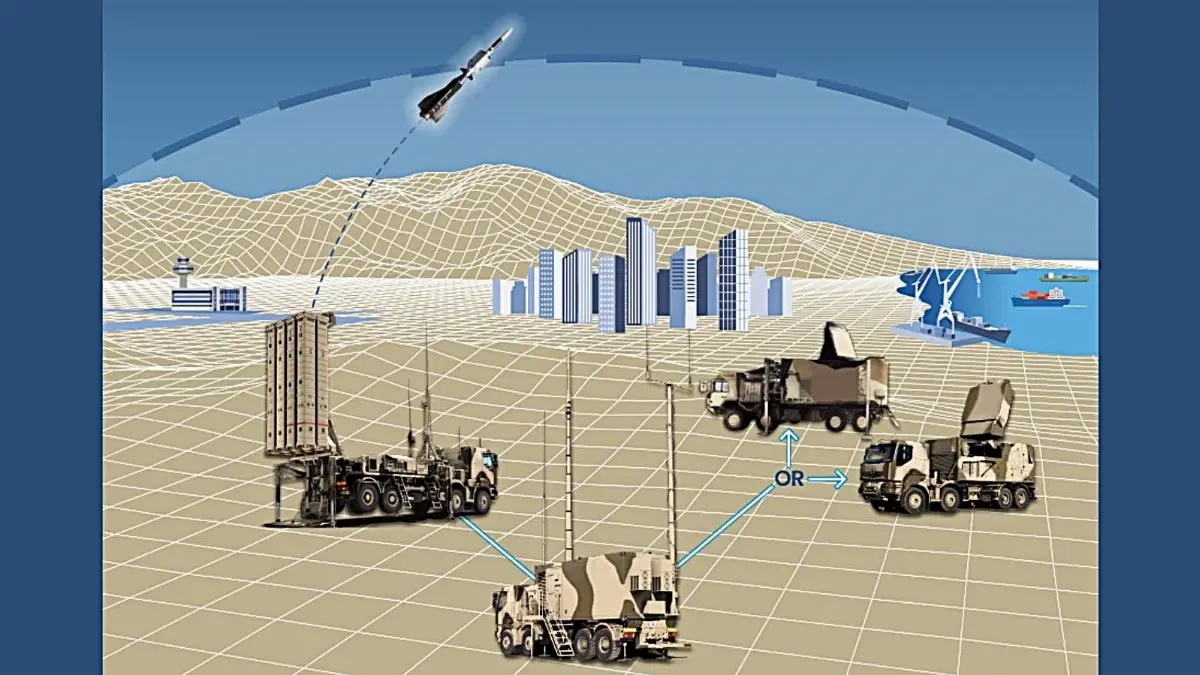
Belgium to acquire MBDA SAMP/T NG medium-range system? Let's talk about it...
Towards a new era in Belgian air defense, contract perhaps within the year

There are strong rumors in the global media about a possible imminent decision by Belgium regarding its air defense. It seems that the country is oriented towards adopting the SAMP/T system, a flagship product resulting from the collaboration between the industrial giant MBDA and Thales under the aegis of the Prime contractor, Eurosam. Known in the French armed forces with the nickname "Mamba", the SAMP/T is an advanced solution for the interception and neutralization of multiple air threats, including cruise missiles, tactical ballistic missiles, and Unmanned Aerial Vehicles (UAVs), thus ensuring a capillary defensive coverage of strategic assets and units in the field, as reported by the French "La Lettre" on October 28.
The implementation of the system represents a significant advancement in Belgium's defense capabilities. This acquisition fills a gap that has long persisted in the Belgian arsenal, providing it with a highly effective medium-range air defense capability in high-threat contexts. This move is part of a broader national strategy aimed at consolidating the country's military infrastructure and intensifying strategic collaborations in the European context, in particular with France, which is particularly relevant in a period of growing tensions and security challenges at the continental level, writes "The Live Asia" from Kathmandu, Nepal, on the same date, again citing "La Lettre".
The SAMP/T system is an advanced surface-to-air missile platform designed for versatility and effectiveness in challenging environments. Equipped with the Aster 30 missile and supported by the Arabel multifunctional radar, the system provides a powerful multi-layered air defense solution. Designed for rapid response and precision interception, the Aster 30 employs a tandem booster, allowing it to counter incoming threats at various ranges and altitudes, thus safeguarding infrastructure and strategic forces in dynamic combat scenarios.
The improved variant, SAMP/T NG (New Generation), incorporates substantial upgrades that make it particularly relevant in contemporary warfare environments. This includes the Aster Block 1 NT missile, which comes with an advanced seeker for improved target acquisition, and a new, sophisticated command and control module. Additionally, this system’s Active Electronically Scanned Array (AESA) radar provides 360-degree coverage and increased detection capabilities in highly contested electronic environments. With its highly mobile, truck-mounted configuration, the SAMP/T NG can be rapidly deployed, ensuring adaptability across various terrains and theaters of operation.
Belgium's decision to invest in SAMP/T aligns with NATO's integrated air defense framework, promoting interoperability with European allies, including France and Italy- France, as announced last September by Sébastien Lecornu, Minister of the Armed Forces in the Attal government, confirmed the order for eight NG variant systems whose first units will be operational with the French Air Force and Space Force (Aae) in 2026, one year earlier than originally planned-. This strategic choice will not only improve Belgium's national security, but will also strengthen Europe's collective defense capabilities against shared security challenges. Let us not forget that last June Brussels, together with France, Cyprus, Estonia and Hungary, signed a joint agreement for the purchase of at least 1,500 Mistral 3 short-range air defense systems (Shorad), precisely from MBDA.
The choice of the European-made missile system, instead of the US-made Patriot system, also reflects a clear preference for internal defence solutions within the European Union. This choice is therefore not only a question of technical specifications but is part of the broader EU objectives of achieving defence autonomy and minimising dependence on non-European suppliers for its crucial defence capabilities. The investment in SAMP/T, amounting to hundreds of millions of euros, also aligns with other strategic defence initiatives that Belgium is undertaking with France and other EU Member States, thus strengthening the continent's cohesion and defence capacity.
The contract will likely be accompanied by industrial offset agreements aimed at supporting the Belgian national defense industry, as is often the case with similar orders. The concept of industrial offsets, or "fair return", has in fact become a standard in major defense contracts, ensuring that a portion of the project's value is reinvested in the economy of the purchasing country (a complete SAMP/T battery is estimated to cost around $500 million, compared to around $1 billion for the American Patriot system).
The negotiation process is expected to be ongoing from the summer of 2024 and could culminate in an official announcement of the contract by the end of the year, probably following the formation of a new coalition government in Belgium.
AVIONEWS - World Aeronautical Press Agency